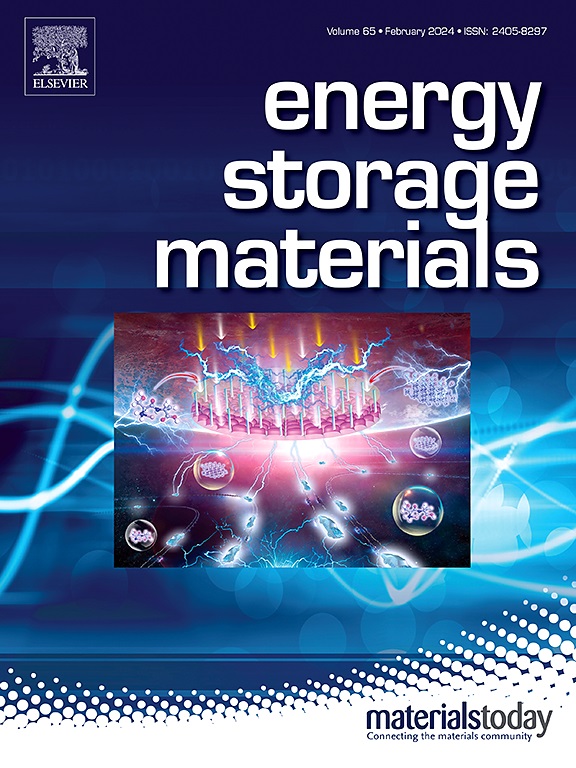From in-situ experimentation to in-line metrology: Advanced imaging characterization for battery research and manufacturing
IF 18.9
1区 材料科学
Q1 CHEMISTRY, PHYSICAL
引用次数: 0
Abstract
The continuous advancement of battery technology necessitates innovative approaches in both research and manufacturing to ensure improved performance, reliability, and safety. This article explores the critical role of advanced imaging characterization techniques, spanning from in-situ experimentation to in-line metrology, in the development and production of lithium-ion batteries. By integrating real-time imaging and diagnostic tools, researchers and manufacturers can gain unprecedented insights into the electrochemical processes, material behaviors, structural defects and their evolutions in commercial-grade batteries. This comprehensive characterization enables the optimization of material compositions, electrode designs, and manufacturing processes, ultimately enhancing the efficiency and longevity of batteries. The synergy between in-situ experimentation and in-line metrology provides a robust framework for addressing the complex challenges in battery research and manufacturing, paving the way for innovations that will meet the growing demands of energy storage systems.
从现场实验到在线计量:用于电池研究和制造的先进成像表征技术
随着电池技术的不断进步,有必要在研究和制造方面采用创新方法,以确保提高性能、可靠性和安全性。本文探讨了先进成像表征技术(从原位实验到在线计量)在锂离子电池开发和生产中的关键作用。通过集成实时成像和诊断工具,研究人员和制造商可以对商业级电池的电化学过程、材料行为、结构缺陷及其演变获得前所未有的深入了解。这种全面的表征有助于优化材料成分、电极设计和制造工艺,最终提高电池的效率和寿命。原位实验和在线计量之间的协同作用为解决电池研究和制造中的复杂挑战提供了一个强大的框架,为满足能源存储系统日益增长的需求的创新铺平了道路。
本文章由计算机程序翻译,如有差异,请以英文原文为准。
求助全文
约1分钟内获得全文
求助全文
来源期刊

Energy Storage Materials
Materials Science-General Materials Science
CiteScore
33.00
自引率
5.90%
发文量
652
审稿时长
27 days
期刊介绍:
Energy Storage Materials is a global interdisciplinary journal dedicated to sharing scientific and technological advancements in materials and devices for advanced energy storage and related energy conversion, such as in metal-O2 batteries. The journal features comprehensive research articles, including full papers and short communications, as well as authoritative feature articles and reviews by leading experts in the field.
Energy Storage Materials covers a wide range of topics, including the synthesis, fabrication, structure, properties, performance, and technological applications of energy storage materials. Additionally, the journal explores strategies, policies, and developments in the field of energy storage materials and devices for sustainable energy.
Published papers are selected based on their scientific and technological significance, their ability to provide valuable new knowledge, and their relevance to the international research community.
 求助内容:
求助内容: 应助结果提醒方式:
应助结果提醒方式:


